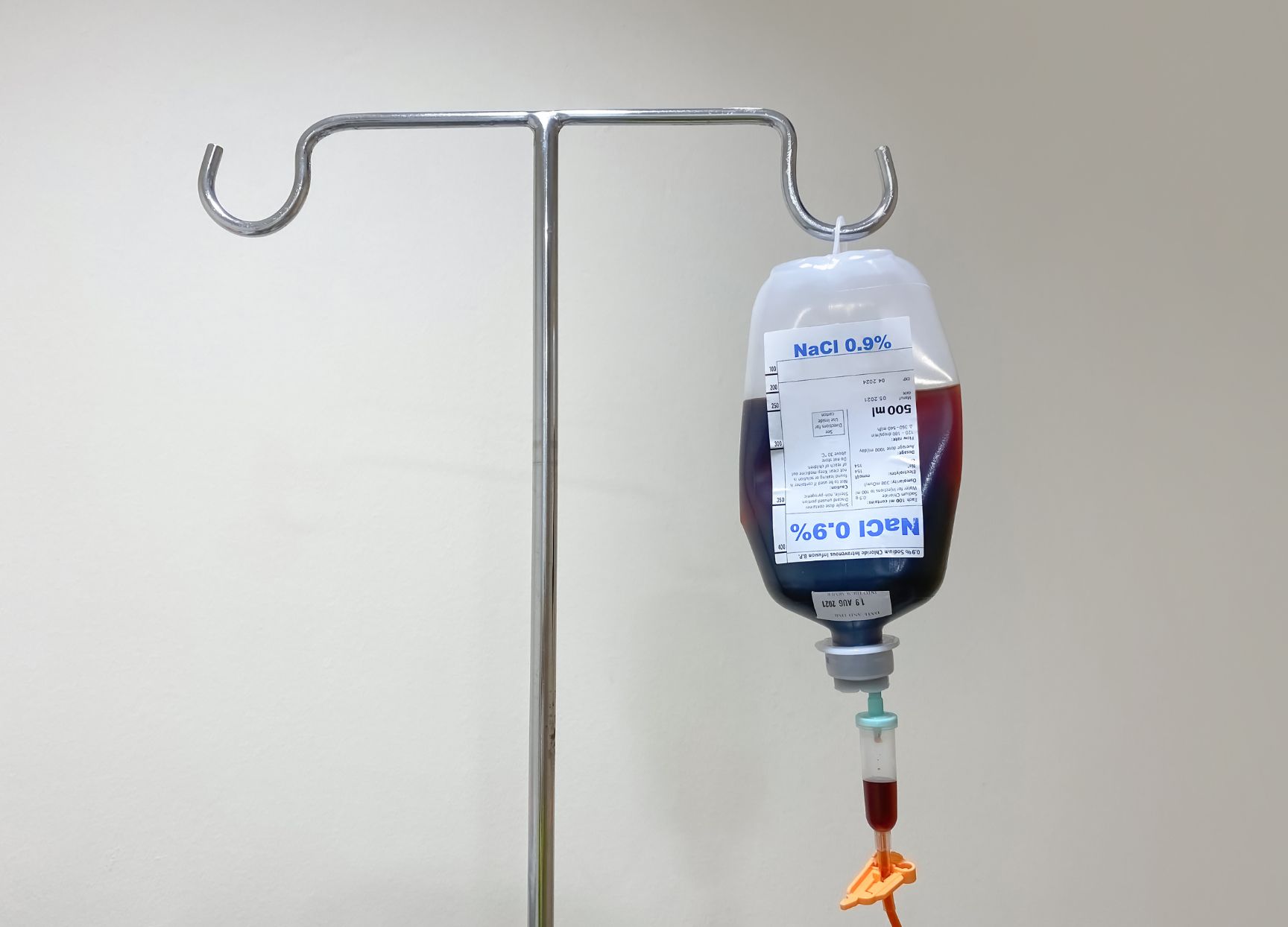Dr Ravishankar Rao Baikady
Consultant in Anaesthesia and Peri-operative Medicine, Consultant in Anaemia and Iron Deficiency Management
Specialist expertise: Anaemia, Iron Deficiency Management, Anaemia Management, Anaesthesia.
If you don't have enough iron, your body can't make haemoglobin, and you may develop anaemia. An iron infusion is a way to receive iron through a small catheter in your vein.

Iron is an essential nutrient for our body. It is an important part of haemoglobin (Hb), the red pigment which gives blood its colour and which carries oxygen around your body.
Iron infusion is quick and efficient way of replacing body iron stores. It is done through intravenous drip. A small needle will be placed in a vein in your hand or arm. The total dose iron will be given through a drip which takes approximately 15 to 45 minutes.
Iron infusion is an efficient way of restoring iron stores in the body. We need iron so our body can make new haemoglobin and red blood cells to carry the oxygen your body requires. Therefore, it is very important to have enough iron in our blood. In addition iron is also essential for muscle function, energy, brain function, immune system and enzyme functions in the body.
What are the benefits of having an iron infusion?
After the infusion blood iron level will increase and this may result in increase in haemoglobin as well. Key benefits include feeling less tired, have more energy, better concentration and become less breathless when taking exercise.
There are some potential side effects to having this injection. The most common is a metallic taste in your mouth. This normally disappears within 15 minutes of you having the injections. You might feel lightheaded, sick or dizzy. If you have these symptoms, please tell the person giving the injection.
Other rare effects you may notice following treatment of iron include:
• Lowering of blood pressure
• Tingling or numbness of the limbs
• Abdominal discomfort
• Muscular aches and pains
• Mild fever
• Rashes
• Skin flushing
• Swelling of the hands and feet
Very rarely, anaphylactic-like reactions (such as paleness, swollen lips, itchiness, weakness, sweating, dizziness, feeling of tightness in the chest, chest pain, fast pulse, difficulty in breathing) may occur. Most reactions subside with in few minutes and very rarely you will require one dose of hydrocortisone injection. Once the symptoms have settled, infusion can be completed. If this happens after you have left the clinic, please go to your nearest Emergency Department or your GP and tell them that you have had an iron injection. This may be an allergic reaction to the iron and you will be given antihistamine medication.
There is also a very rare case of iron extravasation (one in 1000 patients) which could stain your skin if the needle is displaced and the infusion fluid goes into the surrounding tissues just under the skin. While this does not cause any damage to the soft tissue, it may lead to permanent staining. Therefore if there is any pain at the injection site, it is important to let your nurse know immediately in order to limit any extravasation. In the rare event that this occurs, a nurse will arrange to take pictures of any staining (with your consent) and document this appropriately so that it may be monitored further.
After the infusion one will be observed for 15 to 30 minutes. One can carry on normal activities and there are no dietary restrictions. Some may feel mild flu like symptoms for 2-3 days. We advise good hydration with water and paracetamol if required. After iron infusion no need to take any iron tablets for 2-3 months.
For more information visit the iron clinic website.
If you would like to make an enquiry, you can email bookings.digestivehealth@onewelbeck.com
Iron Infusion Details/Pricing
Our Iron Infusion Specialists.